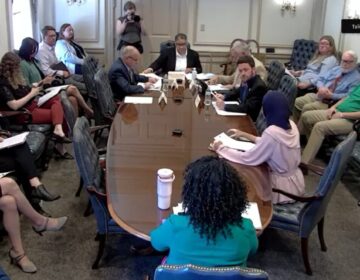Delaware on board to draft national science standards
Delaware has joined a national effort to develop science standards that all K-12 students should meet by the time they graduate high school.
“Just as Delaware took a leadership role in writing national Common Core mathematics and English language arts standards, it is important for our science educators to have a hand in this groundwork,” Secretary of Education Dr. Lillian M. Lowery said.
Now, 26 states will help draft the Next Generation Science Standards (NGSS), a collaborative initiative that will clearly define content and practices students need to learn through high school graduation.
Partnering with the states are the National Research Council, the National Science Teachers Association, the American Association for the Advancement of Science, and Achieve, which is facilitating the collaboration.
“A majority of the states, educating more than 50 percent of our nation’s students, have committed to developing the Next Generation Science Standards and they should be commended,” said Michael Cohen, president of Achieve. “Their collaboration with the leading voices on science and science education will produce a set of rigorous standards that will provide students with a complete science foundation and prepare them to be college and career-ready.”
Drafting the standards is a two-step process, according to Delaware’s Department of Education. The National Research Council completed the first step this past summer. The committee of scientists and educators established a framework identifying core ideas and practices in natural sciences and engineering they believe all students should know by graduation time. Now it’s up to the states to develop science standards based on that framework.
A recent U.S. Department of Commerce study shows that over the past 10 years, growth in Science, Technology, Engineering and Mathematics (STEM) jobs was three times greater than that of non-STEM jobs. The report also shows that STEM jobs are expected to continue to grow at a faster rate than other jobs in the coming decade.
“We must provide our students a strong science education so they have the necessary knowledge to compete in a global economy,” said Stephen Pruitt, Vice President of Content, Research and Development at Achieve. “A strong understanding of science is crucial not only to our success as a nation, but to living in the 21st century.”
Joining Delaware as the newest state partners to lead this effort are Arkansas, Illinois, Montana, North Carolina and Oregon.
All states were invited to join in June 2011. The first round of states included Arizona, California, Georgia, Iowa, Kansas, Kentucky, Maine, Maryland, Massachusetts, Michigan, Minnesota, New Jersey, New York, Ohio, Rhode Island, South Dakota, Tennessee, Vermont, Washington and West Virginia.
WHYY is your source for fact-based, in-depth journalism and information. As a nonprofit organization, we rely on financial support from readers like you. Please give today.




